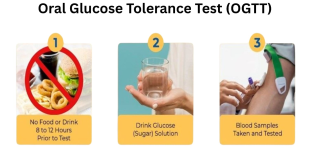 What is IBS?
What is IBS?
IBS (irritable bowel syndrome) is a chronic condition of the digestive tract that causes belly pain and problems with bowel movements. Some people with the condition have frequent, watery bowel movements (diarrhea). Others do not have enough bowel movements (constipation). Some patients switch back and forth between diarrhea and constipation.
IBS is the most commonly diagnosed gastrointestinal condition and is second only to the common cold as a cause of absence from work. An estimated 10 to 20 percent of people in the general population experience symptoms of IBS, although only about 15 percent of affected people actually seek medical help. The chronic nature of IBS and the challenge of controlling its symptoms can be frustrating for both patients and healthcare providers. However, there are treatments and therapies that can help.
What are the symptoms of IBS?
Stomach pain and cramps, related to a bowel movement
Diarrhea or constipation (some people switch back and forth between diarrhea and constipation)
Bloating
Gas
Is there a test for IBS?
No, there is no specific test, but your doctor can figure out if you have IBS by asking you a few questions, and by running tests to make sure you do not have something other than IBS. Lots of medical conditions can cause the same symptoms as IBS. So, it is important that your doctor checks the other possibilities.
What can I do to feel better?
Start a diary to keep track of what you ate each day, what you did, and how you felt. That way, you can figure out if anything you do or eat makes your symptoms better or worse.
Stop eating foods that might be making your IBS worse. Start by giving up foods that give you gas, and then give up milk, ice cream, and other foods that have traces of milk for two weeks. Ask your doctor for advice on which foods can make IBS worse.
Eat more fiber if you have constipation. You can do this by eating more fruits and vegetables. Or, you can take fiber pills or powders. (If eating more fiber makes symptoms worse, cut back on the fiber.)
Exercise. Do something active for 20 to 60 minutes, 3 to 5 days a week. Studies show this helps improve IBS symptoms.
How is IBS treated?
Medicines can ease the symptoms of IBS, but no treatment can cure the condition. Counseling might also help with IBS, because stress and worry can make the condition worse. The medicines that can help with IBS symptoms include:
Medicines to ease diarrhea
Medicines to ease constipation
Antidepressants: these work by blocking pain. When used to treat IBS, they are given at a much lower dose than would normally be given to treat depression.
Antispasmodics
Antibiotics: they sometimes help with bloating and diarrhea in some people
What will my life be like?
It is important to work with a clinician to monitor your symptoms over time. If symptoms change, further testing may be recommended. Over time, less than 5 percent of people diagnosed with irritable bowel syndrome will be diagnosed with another gastrointestinal condition. Although IBS can cause substantial physical discomfort and emotional distress, most people are able to control their symptoms and live a normal life without developing serious health problems.
 Medicosnext
Medicosnext


